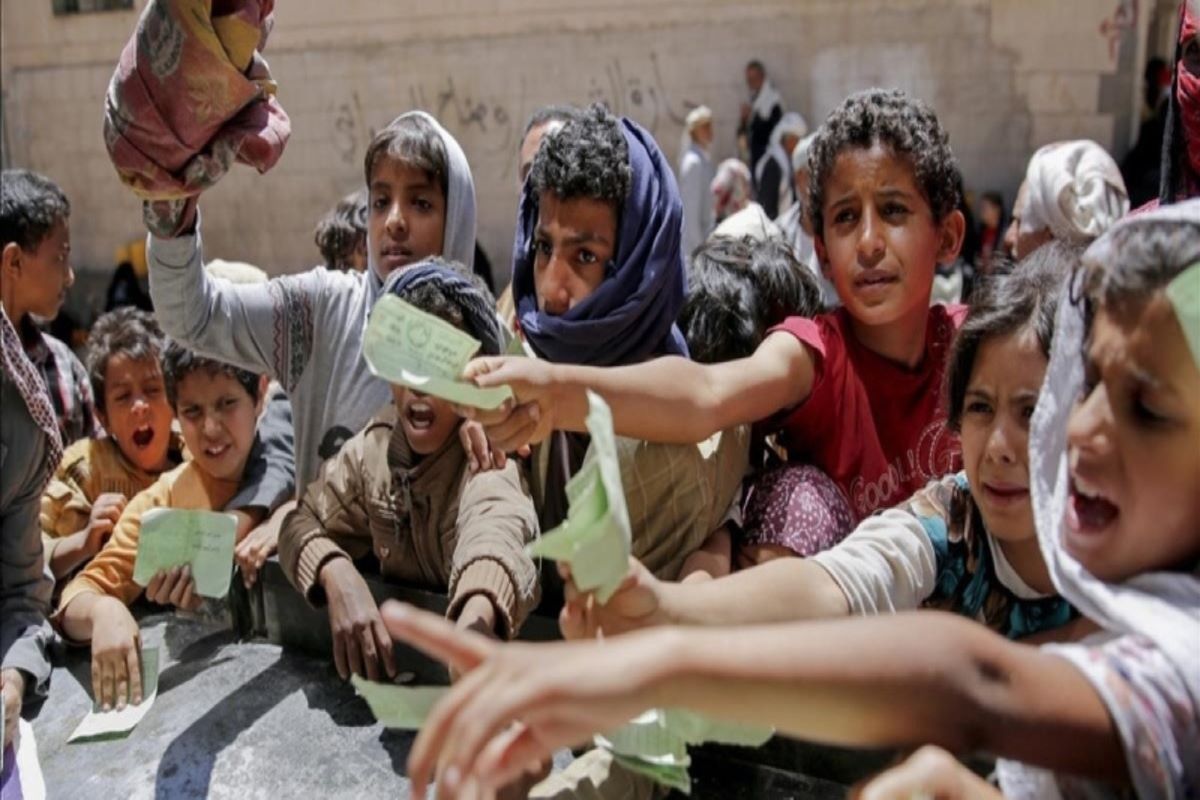Raising a kid is 18 years of prompt engineering: Musk
Raising a kid is 18 years of prompt engineering, said Tesla and SpaceX CEO Elon Musk on Wednesday.
Among 2.2 million children, 538,000 are severely malnourished. An estimated 1.3 million women could be “acutely malnourished” by the end of the year. In a prognosis that is as graphic as it is heart-rending, Catherine Russell, executive director of Unicef, has warned that “more and more children are going to bed hungry in Yemen. This puts them at increased risk of physical and cognitive impairment, and even death.”

Yemeni children present documents to receive food (AP file photo)
The visual of a child reduced to skin and bone graphically sums up the catastrophe. Ahead of the UN’s annual fund-raising conference in aid of starving Yemen, which bears witness to a civil war since 2020, it would be a gross understatement to suggest that the embattled nation is facing a scarcity of food.
The Integrated Food Security Phase Classification (IPC) has warned that an estimated 161,000 people in Yemen are very likely to countenance famine during the second half of 2022. It is a measure of the severity of the crisis and the resonant cry for food that the quoted figures mark a five-fold increase from the current figure. The IPC is a global partnership of 15 UN agencies and humanitarian entities working in Yemen with funds advanced by the European Union, USAID and UKAID.
Even the World Food Programme is concerned. To quote David Beasley, its head: “These harrowing figures confirm that we are on to a catastrophe in Yemen and we are almost out of time to avoid it.” As yet there has been no response for “immediate funds to avert imminent disaster and save millions”. A total of 19 million people ~ out of a population of more than 30 million ~ will very probably be unable to meet their minimum food requirement between June and December ~ up from 17.4 million.
Advertisement
Among 2.2 million children, 538,000 are severely malnourished. An estimated 1.3 million women could be “acutely malnourished” by the end of the year. In a prognosis that is as graphic as it is heart-rending, Catherine Russell, executive director of Unicef, has warned that “more and more children are going to bed hungry in Yemen. This puts them at increased risk of physical and cognitive impairment, and even death.”
With its focus riveted to Russia’s invasion of Ukraine, the world is not suitably aware of the deepest tragedy unfolding in another swathe. Hunger in Yemen is embedded in internal strife and is likely to deteriorate due to the seemingly relentless war in Ukraine. Yemen relies almost entirely on food imports, with 30 per cent of its wheat being imported from Ukraine, according to UN agencies. Peace is imperative to end the decline, “but we ought to make progress now”, to quote David Gressly, the UN’s coordinator for Yemen.
Indeed, the dearth of funds is said to have forced aid programmes to scale down assistance or bring down the shutters altogether. Food aid for 8 million people has been drastically cut down and fears have been expressed by the UN representatives that in the coming weeks, nearly 4 million people could lose access to clean water, even sanitation. It is hard not to wonder if the world has forgotten Yemen even as disasters in another part of the world are demanding global attention.
Advertisement